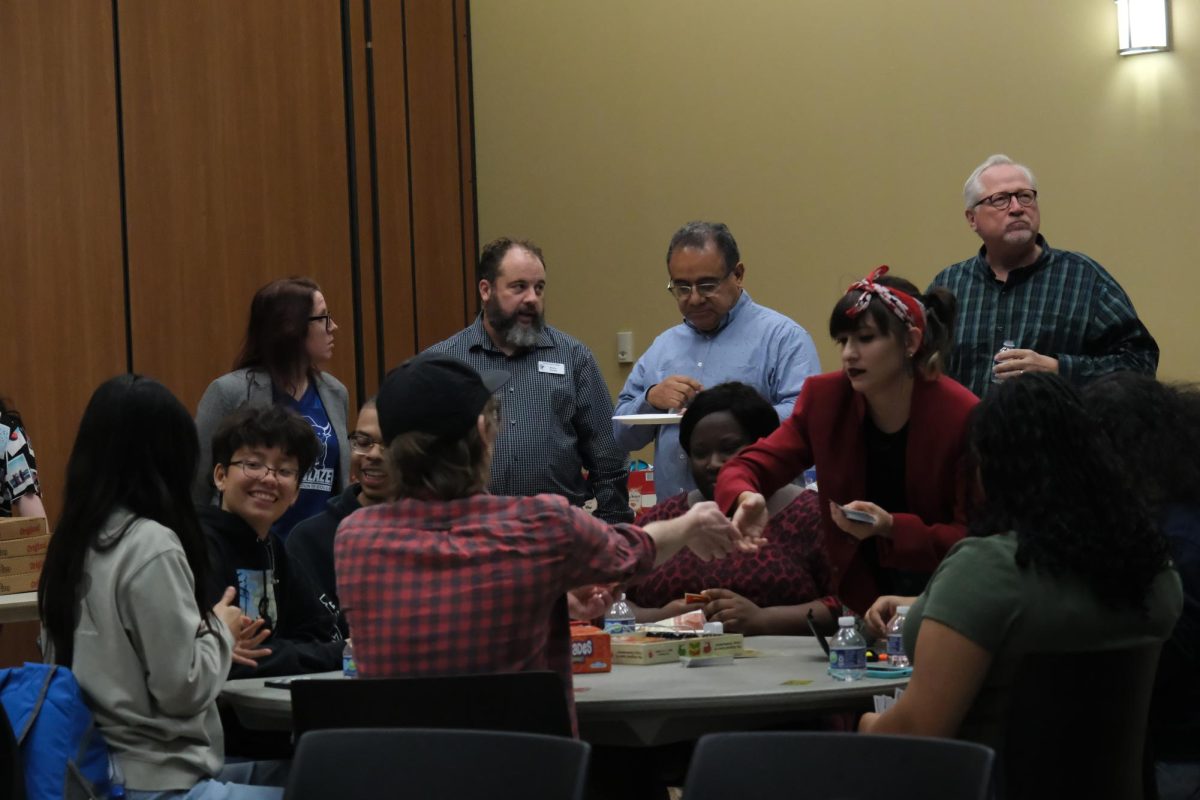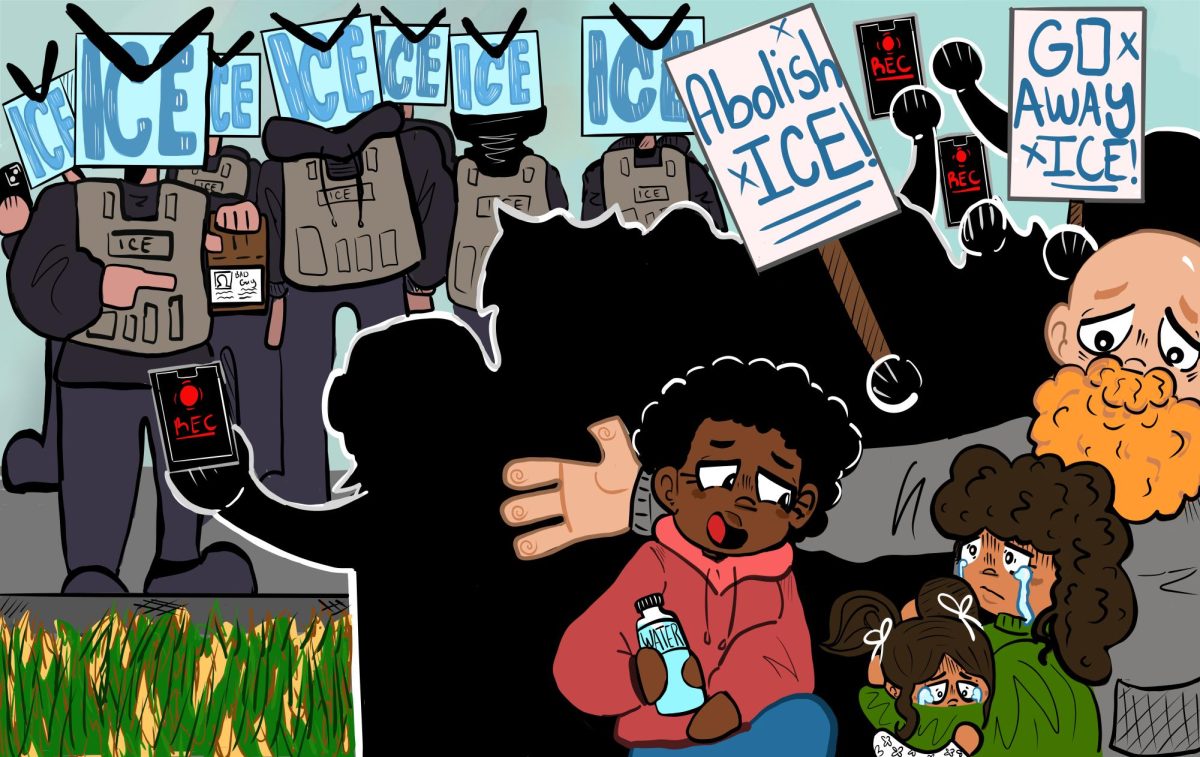It could be considered a terrible idea to log onto Facebook the morning after election results were posted, but it was an eye-opening experience seeing what was displayed on a 6-by-3-inch screen.
Both sides argue the other candidate’s rhetoric fuels hate, and the media is running the show.
Each post swiped past displaysa generated image with overlayed text describing a belief or blatantly ridicules another’s. With a simple click of a button, one can denounce a person’s existence and fuel a rage in people to attack.
It makes sense for a country to strive for greatness. However, hate and fear aren’t ways to generate a great country. Key terms and phrases used by powerful people to produce emotions are verbal attacks that have previously encouraged hate crimes.
So, I ask why. Why would a country allow such intolerance from both sides? Is it because the divide distracts the American people from the power-hungry individuals standing in Congress who seem to care more about a thriving country than the well-being of its people?
Or is it darker? Is there still an underlying agenda to destroy the communities in America who make this country great?
The arguments for border control, a better economy and accessible health care are based on our country’s belief to want to be better. But the words used to grab the attention of viewers paint an alarming picture.
Are these prejudiced cries for just that, attention? Are we as Americans so self-centered that discriminatory language must be used for us to care? Or is it that bigotry is so deeply rooted into our history that the words used are how people have always felt?
My hope is for the former, but what I see in the media leads me to believe otherwise.
When speaking to people at bars, events or on campus, a majority just want to survive, to live without fear or worry for the next day. People want to have a sustainable career, own a home, have a family, to travel, to eat food, to feel loved and important by the people around them.
So why is it that when logging onto a media account everything being discussed is hateful? Everyone has a boogie man out to get them, and online platforms point the finger at a specific community to be the source of other’s misfortune.
The media forced our country into an echo chamber that needs drama for change to be discussed. We have become so egotistical that we must have someone to blame rather than think about how we could have done better ourselves.
This constant back and forth has driven me mad. We continue to discuss the same issues over and over, but each time we have a different scapegoat. We choose to try fixing the issues by attacking it the same way, forcing the blame onto others.
Insanity is defined as doing the same thing again and again but expecting different results, and it seems as if our country is promoting insanity. I know I feel that way. But this chaotic state is easily settled when I get off my phone and go out to interview the people on our TCC campuses.
This semester was my first opportunity to write for a newspaper, and during these fleeting months of fast-paced reporting for The Collegian, my mind has been opened to an entirely new way of thinking.
At first, approaching strangers to ask difficult questions concerning politics, beliefs and personal struggles was terrifying. However, interviewing our community has taught me to approach these conversations with a kinder heart.
Attending events where I would be required to speak with individuals I’d let go unnoticed before has developed my ability to be empathic. While listening to some people may be difficult, choosing to do just that, listen, changes their way of perceiving you too.
Blatantly submitting oneself to the information provided online will only amplify the issues we face today. Instead, log off. Engage in community events and have genuine experiences to discover what you believe.
It is important to note that people will naturally question what they don’t understand, but by being patient and communicating with care, we can guide each other toward harmonious relationships.
Proceed in life with the openness of a child, and remember you aren’t the only one with a story to be heard.































